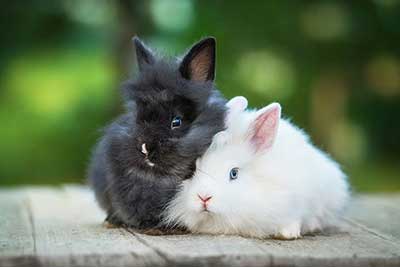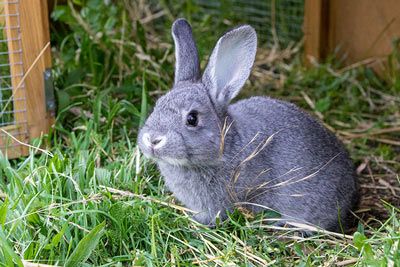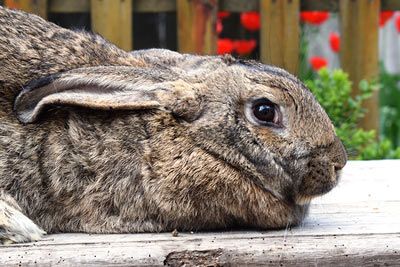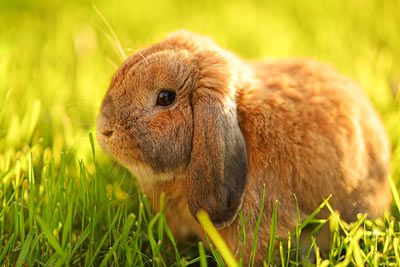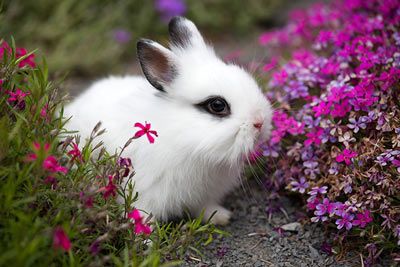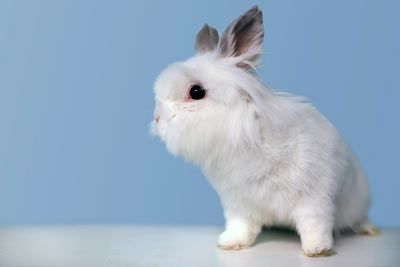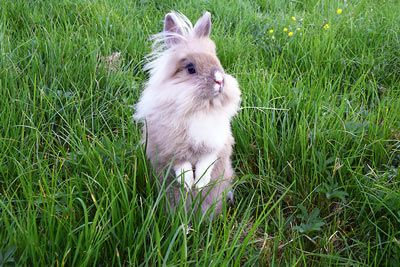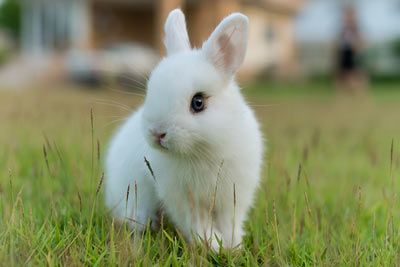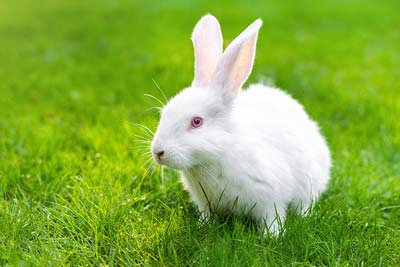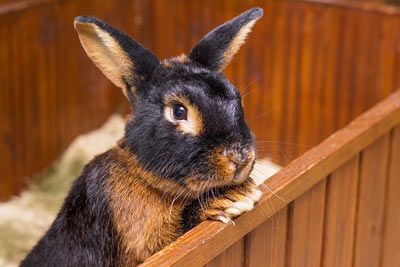Keeping Pet Rabbits
What do you need to know about keeping of rabbits? Here you find out!
We give you a practical overview of the most important information you need about keeping rabbits.
When it comes to keeping pets in a species-appropriate way, the first thing to consider is the number of animals you plan to have. Next, of course, is how much space they need, because they not only need a cage or hutch, they also need an enclosure to run and play in.
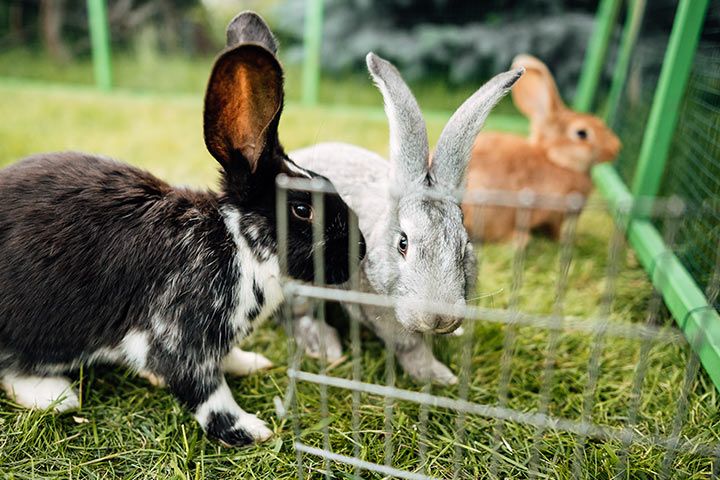
How to Keep Them
Rabbits are not solitary animals. They easily get scared when alone. It’s even illegal to keep them alone in Germany. Rabbits are always kept in pairs as a minimum - but they should be the same sex. A small group would be even better for these animals, e.g. two females and two males.
Space
Rabbits are very active and have lots of energy. They want to run around, jump and hop. So they need a lot of space. You should plan in 21-32 square feet (2-3 m2) for one rabbit, so that’s 43-64 squre feet (4-6 m2) for two rabbits. That may sound like a lot, and it is, when you think that a small apartment bedroom might be 86-107 square feet (8-10 m2).
Even if salespeople at your pet store try to convince you that the animals in their cages are happy, they’re just saying that because they’re trying to make a sale. There is hardly any cage you can buy that’s big enough. If you want to make your pets happy, you can build a hutch yourself - it can even be really fun!
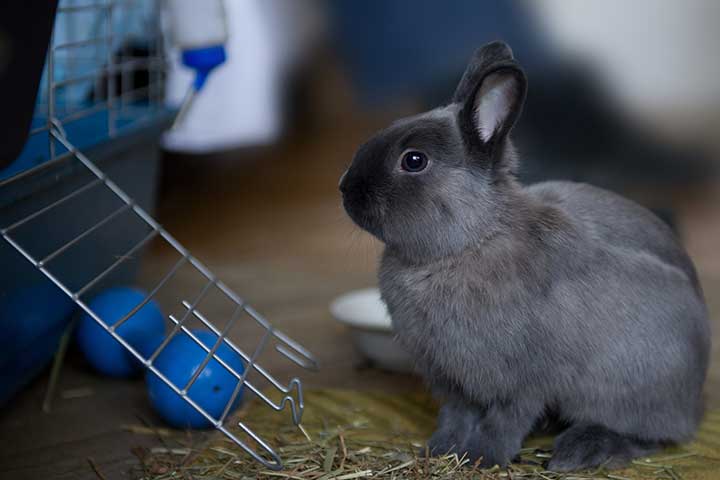
Keeping Rabbits Indoors
If you have plenty of rooms, you can turn a whole room into a rabbit hideaway. This would be perfect but it isn’t always possible. So what can be done if you don’t have a garden? You can also separate or fence off a large area of a room for a hutch or cage. It would be better, however, to keep these animals outside rather than inside (see section on keeping rabbits outdoors below), as apartments are simply not their natural habitat.
• Cage Size and Location
Materials made from wood, coated wire containing no toxic substances, stainless steel cages with powder coating, right distance between wires (from 1.2 cm), no draughts, not too close to the heating, not in a window, not in your bedroom, no perfumes, alcohol or smoke in the room, no TV in the room, no toxic plants, no exposed power outlets, all cables secured
Inside the Hutch
The perfect cage! ![]()
- A little house with two exits for each rabbit
- Rabbit toilet
- Food and water bowls
- Cardboard boxes with holes to run through
- Hay rack
- Floors and ramps to climb
- Grazing tunnel
- Snack balls
- Tubes in cork, wood or clay
- Twigs, roots, stones
Please note! ![]()
- No house, tunnels and boxes with holes that are too small (risk of getting stuck)
- No plastic toys
- No plastic houses
- No cages with wire floors
- No cages in bedrooms
- No shiny chrome metal (too bright)
- No plastic-coated wire
• Runs
Rabbits should always have access to their runs, as they are active at night and want to move around. The cage or hutch should therefore be connected to the run. Outside, a run should offer protection from the elements (sun, rain, wind) as well as shade and rabbit-friendly toys.
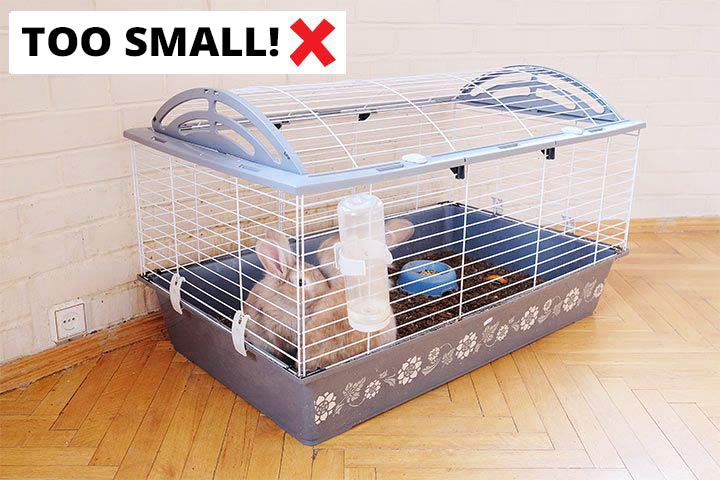
Keeping Rabbits Outside
Being kept outside is the best option for rabbits. Most can be kept outside all year around, as long as a couple of things are kept in mind: these animals always need fresh food and water. The animals must always be able to decide whether they want to retreat to their beds or play outside.
What Do I Have to Consider in Summer and Winter?
In summer, the animals are mainly outside in the enclosure. It should therefore provide protection from the weather (sun, rain, wind) as well as shaded areas. In winter, the animals spend more time indoors. The hutch must be especially built for winter, and offer protection from the cold. By the way: it’s possible to keep rabbits on a balcony, as long as it’s big enough and rabbit-proof.
Which Pet Rabbits Can't Be Kept Outside?
Only a few breeds are not suitable for living outside all year round, for example long-haired or very small rabbits such as the Mini Rex, Angoras, Jersey, Wooly, Lionhead, Netherland Dwarf and the Dwarf Hotot.
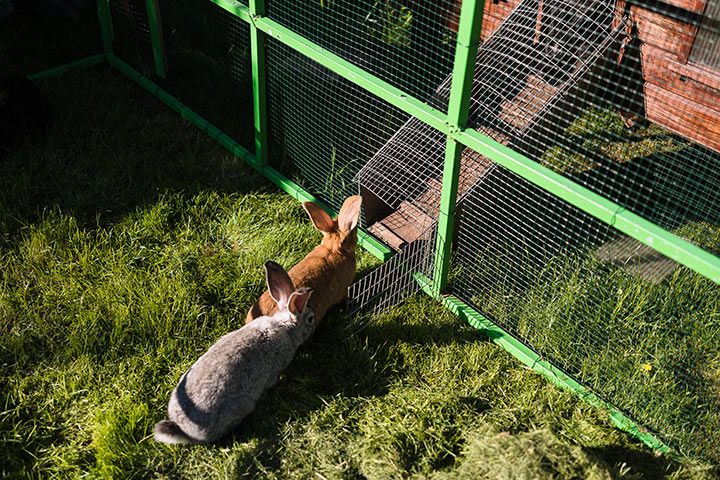
Pet Rabbit Guide
If you’d like to keep rabbits, you should get yourself a good book on rabbits first. This article can’t replace this, just provide important information so you can get an idea of what’s involved.

